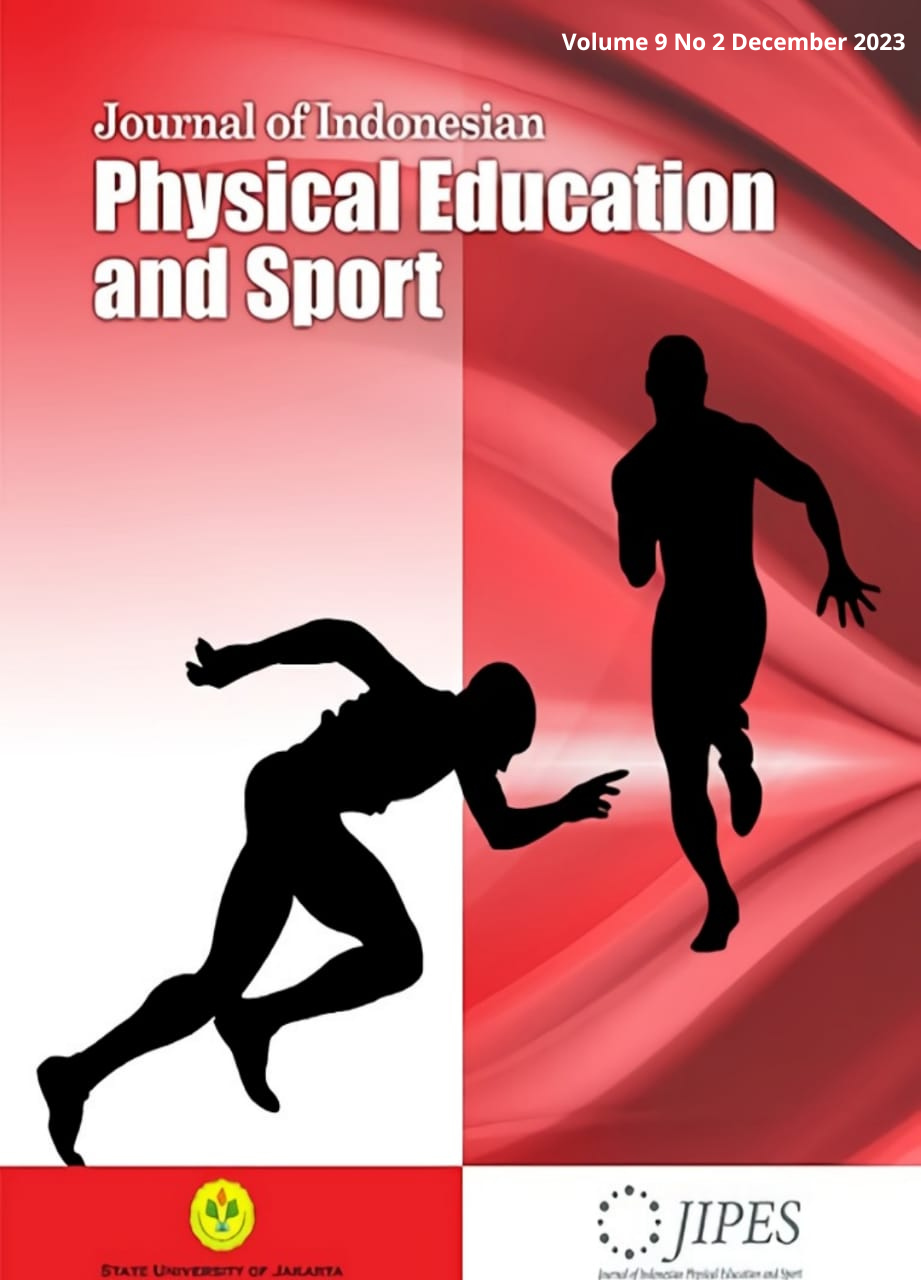Knowledge and Attitude as Correlates of Participation in Recreation Activities among Members of Staff of a Tertiary Institution in Ekiti State, Nigeria
DOI:
https://doi.org/10.21009/JIPES.092.03Keywords:
Recreation, Knowledge, Attitude, Participation, Tertiary InstitutionAbstract
The purpose of this study was to determine the relationship between knowledge, attitude, and participation in recreational activities among members of staff of Ekiti State University (EKSU). The descriptive survey research design was adopted. Two hundred and one (201) members of staff of EKSU, selected through convenience sampling technique, from 8 faculties in EKSU, participated in the study. Data was collected with the aid of a self-developed and validated questionnaire and relationships among variables were determined using Pearson Product Moment Correlation analysis while differences were determined using t-test. Significance was set at P<0.05. The findings of this study revealed that 82.6%, 83.1%, and 66.7% of the respondents had a good knowledge, a positive attitude, and a moderate level of participation in recreational activities. Female respondents performed better in knowledge and participation in recreational activities. Also, respondents within the age range of 35-44years had a better attitude and participation in recreational activities. Knowledge had a significant positive relationship with attitude (r-0.365, P<0.05), and attitude also had a positive relationship with participation in recreational activities. (r=0.147, P<0.05). There was no significant difference between academic and non-academic staff in the knowledge, attitude, and participation in recreational activities. The outcome of this study suggests that having a good knowledge and a positive attitude are associated with a higher level of participation in recreational activities.
References
administrative staff of tertiary institutions in Ondo State, Nigeria. International Journal of
Education and Research, 3(2), 189-202. https://www.ijern.com/journal/2015/February-
2015/17.pdf
Agbabiaka, H., Omisore, E., Oparinde, R., Dada, O., Adeyemi, S., Oyedokun, A. & Sulaiman, G.
(2020). Attitude towards recreation: A case study of Nigerian academic staff in public
institution, The international Journal of the Constructed Environment, 11(2), 1-16.
https://dx.doi.org/10.18848/2154-8587/CGP/v11i02/1-16
Akitoye, M.A.O. (2017). Recreational Activity Participation among Academic Staff of Ahmadu
Bello University, Zaria, Kaduna State.
https://www.semanticscholar.org/paper/RECREATIONAL-ACTIVITY-
PARTICIPATION-AMONG-ACADEMIC-
Akitoye/26b0f9a90fce27367c54176e0bee11d43aa54e93
Babalola, A.J. & Alayode, A.M. (2012). Pattern of leisure activity involvement of academic and
non-academic staff in tertiary institutions in Ondo State, Nigeria. American Journal of
Human Ecology, 1(1), 28-32. https://dx.doi.org/10.11634/21679622150460
Bakare, T.V. (2013). Leisure patterns among Nigerian university lecturers: the potential for
leisure education in industries. IOSR Journal of Sports and Physical Education, 1(2), 1-8.
https://dx.doi.org/10.9790/0837-0120108
Best Style Trends (2021). 15 great examples of recreational activities that anybody can do.
https://beststyletrends.com>exa.
Kabadayı, M. Eski, T., Bayram, L., Yılmaz, A.K., Mayda, M.H. (2017). Analysis of the factors
which influence participation of university students in recreational activities. European
Journal of Educational Studies, 3(12), 161-171.
https://dx.doi.org/10.5281/zenodo.1117349
Metin, T.C., Kathcs, H., Yuce, A. & Saricam, S. (2017). An inventory study on the
categorization and types of recreational activities. International Journal of Social
Sciences 59, 547-561. https://dx.doi.org/10.9761/JASSS7159
Murad, M.R., Rahman, A.A., Rahman, N.I.A., & Haque, M. (2016). Knowledge, attitude and
practice regarding exercise among people exercising in gymnasium and recreational parks
around Kuantan, Malaysia. Journal of Applied Pharmaceutical Science, 6(06), 047-054.
https://dx.doi.org/10.7324/JAPS.2016.60609
Pasli, M.M. & Harbalioğlu, M. (2014). Factors hindering university students from the
participation in recreational activities and trends. International Journal of Research in
Social Sciences, 4(3), 37-44.
Ul Haq, N., Hassail, M.A., Shafie, A.A., Saleem, F., Faroqui, M. & Aljadhey (2012). A cross
sectional assessment of knowledge, attitude and practice towards hepatitis B among
healthy population of Quette Pakistan. BMC Public Health, 12, 692.
https://dx.doi.org/10.1186/1471-2458-12-692
Suleiman, A.G. (2016). The ned to know and understand recreation, leisure and tourism practices
in Nigeria. https://nou.edu.ng/sites/default/files/2017-
06/Complete%20Inaugural%20Lecture%20-%20PROF%20%20AG%20SULEIMAN.pdf.
21/11/2021
Wartecka-Wazynska, A. (2013). Factors affecting recreational activity of young
People from secondary schools. Baltic Journal of Health and Physical Activity. 5(4), 267-
273. https://doi.org/10.2478/biha-2013-0025
WHO (2010) Recreation, leisure and sports. https://www.ncbi.nlm.nih.gov/books/NBK310922/










 </a > a
</a > a 